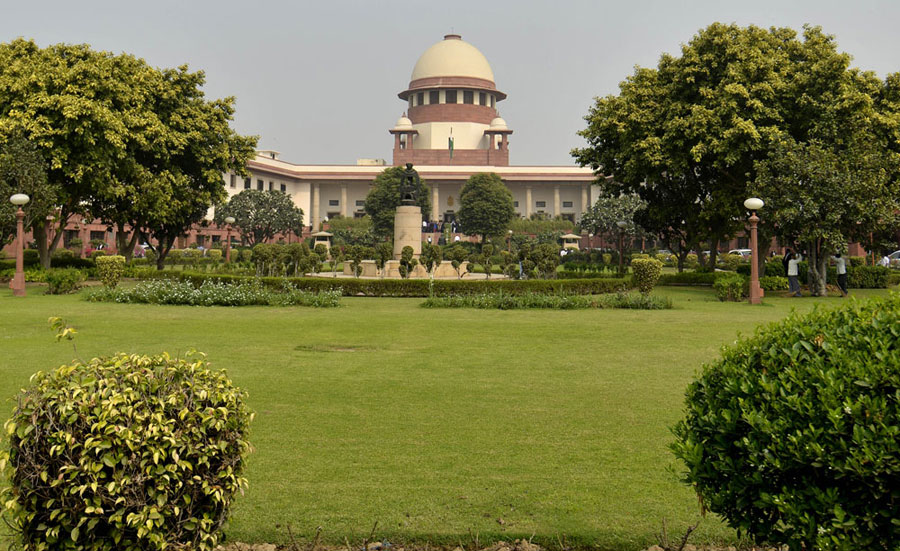The Supreme Court on Wednesday cleared the way for quotas for Scheduled Castes and Scheduled Tribes in government job promotions, scrapping the need to collect “quantifiable data” reflecting the backwardness of these communities.
The court struck down the portion of an earlier ruling requiring such data to ascertain the backwardness of SCs and STs for allowing reservation in promotions.
Referring to a 2008 verdict, the Supreme Court disagreed with the ruling that the creamy layer did not apply to SCs and STs. This was interpreted as the court’s endorsement of the introduction of creamy layer in job promotions for members of the communities.
A bench of Chief Justice Dipak Misra and Justices Kurian Joseph, R.F. Nariman, S.K. Kaul and Indu Malhotra on Wednesday also said the “efficiency of administration” had to be looked at every time promotions are made, as the Supreme Court had ruled in the 2006 M. Nagaraj case.
The five-judge bench stated that the issue of the representation of SCs and STs in promotions in proportion to the population should be left to the government concerned.
The bench said the conclusion arrived at in the Nagaraj case that the states had to collect quantifiable data showing backwardness of SCs and STs was “contrary” to the nine-judge bench judgment in the Indra Sawhney verdict of 1992, popularly known as the Mandal Commission case.
“Thus, we conclude that the judgment in (the) Nagaraj (case) does not need to be referred to a seven-judge bench. However, the conclusion in (the) Nagaraj (case) that the State has to collect quantifiable data showing backwardness of the Scheduled Castes and the Scheduled Tribes, being contrary to the nine-judge bench (ruling) in (the) Indra Sawhney (case), is held to be invalid to this extent,” the court said.
Wednesday’ judgment also referred to the Supreme Court verdict in the 2008 Ashoka Kumar Thakur Vs Union of India case on a constitutional amendment enabling reservation in admission in higher educational institutions. The apex court had ruled out the application of the creamy layer for SCs and STs in that judgment.
The court had then ruled that the “creamy layer principle is inapplicable to SCs and STs as it is merely a principle of identification of the backward class and not applied as a principle of equality”.
Disagreeing with the 2008 judgment, the Supreme Court said on Wednesday: “Constitutional courts, when applying the principle of reservation, will be well within their jurisdiction to exclude the creamy layer from such groups or sub-groups when applying the principles of equality under Articles 14 and 16 of the Constitution of India. We do not agree with the… statement in (the) Ashoka Kumar Thakur (case) that the creamy layer principle is merely a principle of identification and not a principle of equality.”
P.S. Krishnan, a former bureaucrat who has been championing the cause of social justice, said this observation meant the court had now agreed with the application of the creamy layer principle in reservation in promotions for SC and ST employees.
“The court has in a way introduced the creamy layer in reservation in promotion for SCs and STs. The creamy layer concept came up in the Mandal (Commission) judgment in 1992. It was introduced to identify socially advanced persons among the Socially and Educationally Backward Classes, not SCs and STs. The SCs and STs have been considered automatically socially backward because the SCs are untouchables and the STs have a distinct culture and practices,” Krishnan said.
He said the problem of untouchability was very much prevalent today. Disallowing reservation in promotion in the name of creamy layer would prevent the representation of SCs and STs in higher positions in government jobs.
“There may be a situation when there aren’t adequate SC and ST candidates to apply for reserved promotional positions. Denying the limited (number of) candidates in the name of creamy layer will delay progress towards equality,” Krishnan said.
Article 14 of the Constitution provides for equality before law, while Article 16 deals with reservation for socially and educationally backward classes in jobs.










